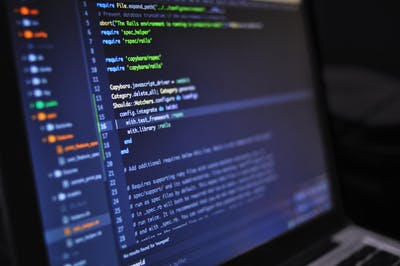Time, as a wise person once remarked, is money. As a result, an organization must treat time as carefully as it does money. Time lost hurts a company's short & long sustainability. On the other side, proper planning can result in increased production, stress reduction, and better engagement with customers.
Being productive with your time does not always imply occupancy when you should be. It's all too easy to get caught up in the wrong thing, only to realize that time has passed and you need to get back to work. Mastering good time management skills take a lot of practice. Nonetheless, it's all too simple to fall into poor habits.
Do you notice yourself stressed out, less efficient, and just doing activities that don't add any positive value to the organization? If this is the case, you should begin creating efficient use of time. We'll offer some solutions to help you fix the problem in this article. Also, read till the end to find out how does employee monitoring software work!
8 Ways to Improve Your Time Management
Ask your doctor if treating an illness requires the use of multiple medications. Here are some suggestions for better time management and business growth.
Make a Priority List of Your Tasks
Understanding that not every activity is equal and applying that information to action will help you manage your time more effectively. If you have a large project, you can break it down into smaller portions and establish realistic deadlines for each one. To minimize task repetition, create a working pyramid and mark off objectives.
Everybody should have different duties, but there should be opportunities for cooperation and innovative overlap. Everyone in the company will work better if they know what their daily, weekly, and monthly goals are and put up their best to meet them.
You can increase productivity by breaking down a project into objectives, deadlines, and milestones.
Keep Track of Activity Progress
Task creation and distribution are merely the first steps. Monitoring the duration of each activity and accomplishment will inform you about what to anticipate and how to maintain productivity. You can generate more accurate projections if you understand how many tasks execute on a normal workday. Furthermore, it will assist you in maximizing the resources at your disposal.
Be on Time
Arriving early to work and conferences captures the mood and ensure that the company meets the required standards. This will also provide you with some bank credit for when you are to be late due to a traffic jam or lost personal belongings.
Time management also gives you time to gather your thoughts rather than rushing into the day's work as soon as you walk through the doors. When you're on time, you exude a sense of calm and dependability that encourages others to follow your lead.
Make the Most of Your Breaks
Many people take advantage of a lunch break at work to work extra shifts. Don't allow yourself to become that person. If you're well, you're a stronger asset to the company. Make use of your regular breaks, and if a paid vacation is available, take it.
Take a stroll, do some jigsaw puzzles, or eat that healthy salad you brought from home during your little pauses.
Anything that allows your mind to relax and keeps you out of the danger zone is OK.
Take it Easy
In the office, the reality is a precious find, yet it's important for optimum time management. Take it easy. Don't try to achieve too much too fast. Be practical regarding how much you can achieve each day. You could use a time tracker to track your work for a week or so to get a sense of where you're at and use that as a benchmark for the future.
If you want to get things done faster, make an evolutionary development plan so that your mind and body become adjusted to the extra labour gradually.
Distribute Your Activities
Even a robot, when utilized continuously, will eventually fail, let alone a human. Organize your daily duties so that you have some time to transition from one task to another.
It's not a good idea to move from one activity to the next. If possible, give at least 15 minutes to get from one session to another. We wouldn't want you to be daydreaming during that crucial conference, do we?
Concentrate on One Task at a Time
Numerous studies have decisively shown that juggling multiple things at once provides no long-term benefit. It's preferable to focus entirely on one item at a time.
Workplace distractions show up almost always by multitasking. Nothing prevents you from working and enjoying at the very same moment if you're doing two activities at once. Concentrating on a single task is significantly better for your efficiency and mental wellbeing. That telephone conversation can be off for a few minutes longer.
Block out Distractions
Poor time management abilities are evidence of your distraction. There are numerous solutions available to assist you if you are unable to handle disruptions on your own. Turn off your phone and put it in your drawers if it's the main offender. Install an app filter and use it to disable bothersome apps and alerts throughout office hours if you need it.
A Note For Employers
While your employees are reading this article and learning how to manage their time efficiently, you should learn how to track and control the productivity of your organization. You can now easily schedule and manage the timetable for your employees while they are working from home.
Get to know about WorktrackZilla, an employee management software that provides you with the authority to rightfully manage and track your WFH employees and boost your productivity while managing the time in the best way possible.
Call us now or surf through our website to know how does employee monitoring software work.







